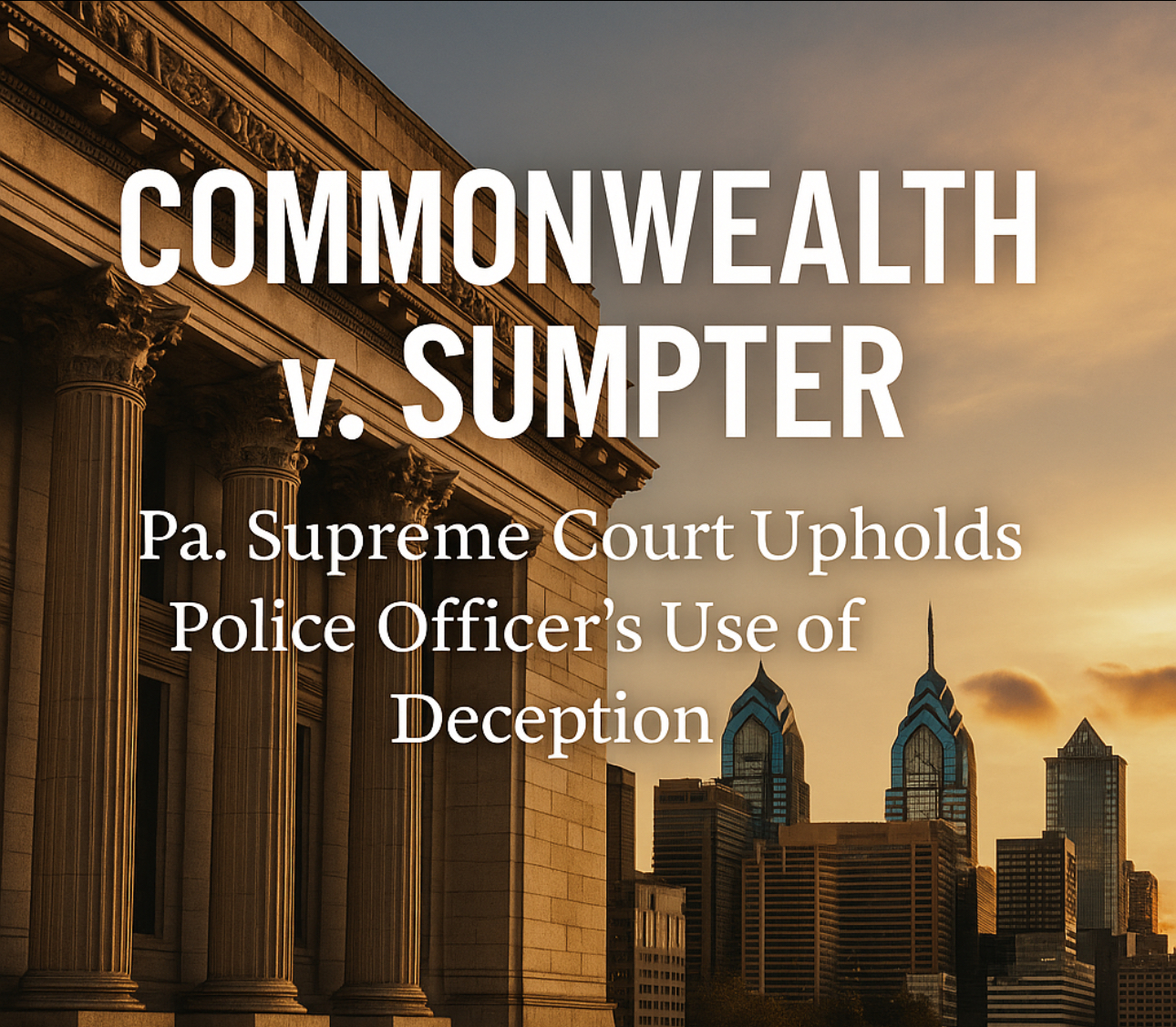Pennsylvania Superior Court Strikes Down Philadelphia’s Open Carry Ban: Commonwealth v. Sumpter, 332 A.3d 1187 (Pa. Super. Ct. 2025)
Sept. 6, 2025

Introduction
In June 2025, the Pennsylvania Superior Court issued a landmark ruling in Commonwealth v. Sumpter, 332 A.3d 1187 (Pa. Super. Ct. 2025), invalidating Philadelphia’s long-standing prohibition on carrying firearms openly without a license. The decision has profound implications for both residents of Philadelphia and the Commonwealth’s firearms laws more broadly.
Background
Pennsylvania law generally permits open carry of firearms by adults over 18 who are not prohibited from possessing guns. However, Philadelphia has been the sole exception, where 18 Pa.C.S.A. § 6108 criminalized unlicensed open carry within city limits.
Riyaadh Sumpter was arrested after openly carrying a firearm in Philadelphia without a license. He was convicted in the Philadelphia Court of Common Pleas and sentenced to twelve months of probation. On appeal, he challenged § 6108 as unconstitutional, arguing that it violated the Equal Protection Clause by treating Philadelphians differently from other Pennsylvanians in the exercise of the fundamental right to bear arms.
The Legal Issue
The central question before the Superior Court was whether § 6108’s unique application to Philadelphia unjustly burdened a fundamental constitutional right. Specifically:
Could the government single out Philadelphia residents for stricter firearm restrictions?
Did the law withstand constitutional scrutiny in light of recent U.S. Supreme Court rulings like Bruen (2022) and Rahimi (2024)?
Foster’s Arguments
Sumpter contended that:
The right to bear arms is fundamental under both the U.S. and Pennsylvania Constitutions.
Applying restrictions to only one city created an unconstitutional disparity.
Under Bruen, modern firearm regulations must align with historical analogues. Philadelphia’s local restriction, he argued, lacked such support.
The Commonwealth’s Defense
Prosecutors defended § 6108 by arguing:
Philadelphia’s high crime rate justified additional restrictions.
Section 6108 gave law enforcement a valuable “tool” to combat gun violence.
Historical city ordinances, such as an early 18th-century law regulating discharges within city limits, provided analogical support.
The Court’s Analysis
The Court recognized that firearm possession outside the home is a fundamental right, triggering strict scrutiny. This meant the Commonwealth had to prove that § 6108 served a compelling interest and was narrowly tailored to achieve it.
Key Findings:
Historical Analogues: The cited 1721 Philadelphia ordinance restricted firing guns in city limits, not open carrying. It failed to provide a true historical analogue.
“Sensitive Places”: The Court rejected the idea that an entire metropolitan area could be labeled sensitive, citing Bruen’s warning against broad classifications.
Equal Protection: By singling out Philadelphia, the law impermissibly burdened one group of citizens more than others without sufficient justification.
Public Safety Concerns: While important, generalized safety arguments cannot override fundamental rights without narrowly tailored evidence.
The Holding
The Court held § 6108 unconstitutional as applied, vacated Sumpter’s sentence, and invalidated Philadelphia’s open carry restriction. The decision does not automatically extend to other forms of firearms regulation but fundamentally alters how prosecutors can charge unlicensed carry cases in Philadelphia.
Judge Lazarus authored the majority opinion. Judge Lane dissented.
Broader Implications
End of Philadelphia’s Unique Rule: Open carry without a license is now legal in Philadelphia on the same terms as the rest of Pennsylvania.
Future Challenges: This case may serve as a blueprint for challenging other geographically uneven restrictions.
Legislative Pressure: The ruling may prompt lawmakers to revisit uniform statewide gun policy.
Law Enforcement Impact: Prosecutors lose a tool previously used in Philadelphia gun cases.
Conclusion
Commonwealth v. Sumpter, 332 A.3d 1187 (Pa. Super. Ct. 2025), is a pivotal decision in Pennsylvania firearms jurisprudence. By striking down Philadelphia’s open carry ban, the Superior Court reaffirmed that fundamental rights cannot be selectively restricted based on geography. Going forward, both citizens and law enforcement must navigate a landscape where open carry is treated consistently across the Commonwealth.

